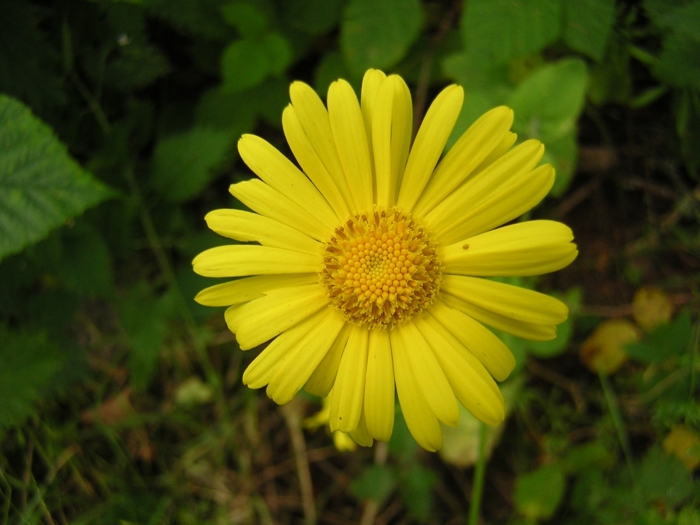Leopard’s-Bane
(Doronicum pardalianches)
Leopard’s-Bane (Doronicum pardalianches)
/
/

aroche
CC BY 4.0
Image By:
aroche
Recorded By:
Copyright:
CC BY 4.0
Copyright Notice:
Photo by: aroche | License Type: CC BY 4.0 | License URL: http://creativecommons.org/licenses/by/4.0/ | Rights Holder: aroche | Publisher: iNaturalist | Date Created: 2004-07-17T16:32:27-07:00 |
























Estimated Native Range
Summary
Doronicum pardalianches, commonly known as leopard’s-bane, is a rhizomatous herbaceous perennial. It is native to woodland edges and meadows in western and central Europe. This plant typically grows up to 31 inches tall with upright, leafy stems and heart-shaped basal leaves. The bright yellow, daisy-like flowers are generally 1.2-1.6 inches across and bloom in late spring to early summer, providing an early source of nectar for pollinators.
Leopard’s-bane is valued for its early flowering period and vibrant yellow blooms, which can brighten up shady garden spots. It is often used in border plantings, woodland gardens, and as part of a pollinator-friendly garden. It thrives in part shade to full shade, prefers moist but well-drained soil, and requires regular watering, especially in dry conditions. While generally low-maintenance, it can suffer from slug and snail damage. It is not known for aggressive roots or significant disease problems. Leopard’s-bane can be propagated by division in the autumn.CC BY-SA 4.0
Leopard’s-bane is valued for its early flowering period and vibrant yellow blooms, which can brighten up shady garden spots. It is often used in border plantings, woodland gardens, and as part of a pollinator-friendly garden. It thrives in part shade to full shade, prefers moist but well-drained soil, and requires regular watering, especially in dry conditions. While generally low-maintenance, it can suffer from slug and snail damage. It is not known for aggressive roots or significant disease problems. Leopard’s-bane can be propagated by division in the autumn.CC BY-SA 4.0
Plant Description
- Plant Type: Herb
- Height: 2-3 feet
- Width: 1-1.5 feet
- Growth Rate: Moderate
- Flower Color: Yellow
- Flowering Season: Spring, Summer
- Leaf Retention: Deciduous
Growth Requirements
- Sun: Full Sun
- Water: Medium
- Drainage: Medium
Common Uses
Border Plant, Butterfly Garden, Deer Resistant, Low Maintenance, Rabbit Resistant
Natural Habitat
native to woodland edges and meadows in western and central Europe
Other Names
Common Names: Leopard’s Bane, Great Leopard’s Bane
Scientific Names: , Doronicum pardalianches, Arnica scorpioides, Aronicum scorpioides, Aronicum scorpioides var. pleiocephalum, Aster scorpioides, Doronicum cordatum, Doronicum cordifolium, Doronicum latifolium, Doronicum macrophyllum
GBIF Accepted Name: